-
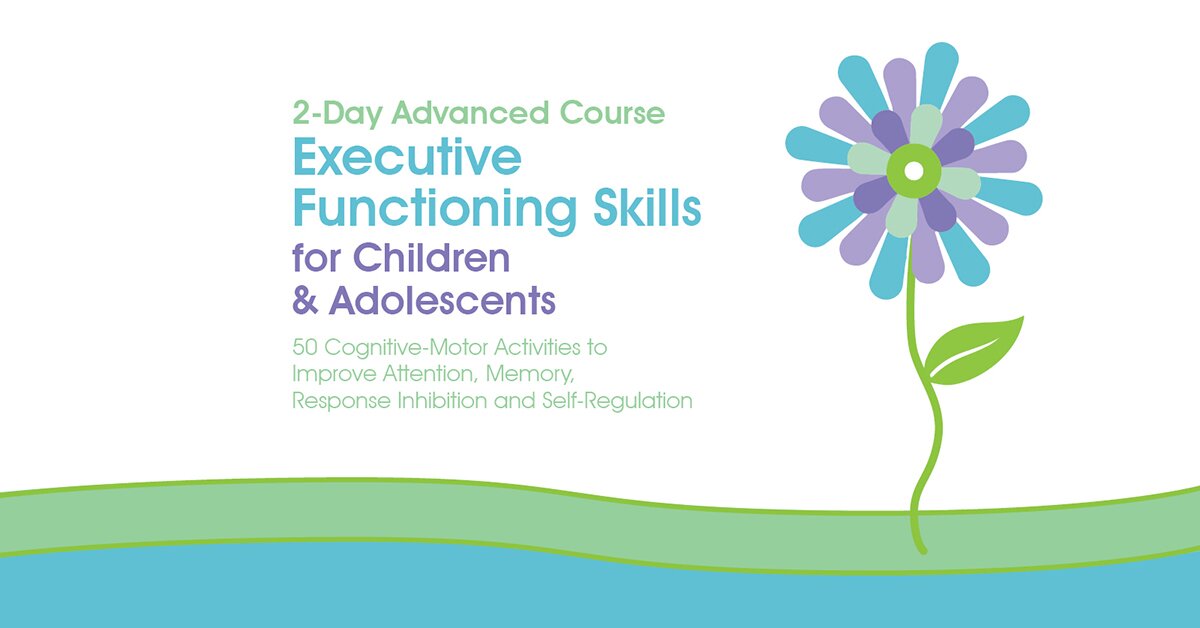
Lynne Kenney – 2-Day Advanced Course: Executive Functioning Skills for Children & Adolescents: 50 Cognitive-Motor Activities to Improve Attention, Memory, Response Inhibition and Self-Regulation
- Faculty:
- Lynne Kenney
- Duration:
- Full Day
- Format:
- Audio and Video
- Copyright:
- Dec 05, 2019
Description
In this recording, Lynne Kenney, Psy,D., pediatric psychologist, author and international educator, will show you how to integrate the newest research in neuroscience, kinesiology, and neurocognitive education for students to behave better and learn more efficiently.
You will experience 50 developmentally progressive cognitive-exercises and coaching activities to enliven your classroom, office and clinic.
Learn how to improve cognition, enhance learning and empower children to be better thinkers with motor movement, sequencing, attending, self-regulation, and memory activities.
Handouts
| Manual – Executive Functioning Skills for Children & Adolescents (14.4 MB) | 130 Pages | Available after Purchase | |
| Instructions for ASHA Credit – SELF STUDY ONLY – 12/05&06/19 (38.5 KB) | Available after Purchase |
Outline
Priming the Brain for Learning
- Impact of brain stimulation, stress, ACE’s and trauma on learning
- Create low-stress-high-connection learning environments
- Biological precursors to learning
- New preliteracy
- Executive function precursors
- 5 early predictors of academic success
- Create a calm classroom culture with kindness, respect & trust
- Importance of collaboration, agency and creativity in learning and behavior
Foundational Motor Competencies that Proceed Learning
- Balance and weight shift
- Postural control for better learning
- Foundational movement patterns & sequences
- Types of patterns and elements
- How to build a movement sequence
- Activities
- Balance activity
- Teaching weight shift
- Head, shoulders, hips & knees
- Can everybody count
- Initial brain primer sequences for attention, memory and self-control
Musical Thinking
- We are musical
- Using The Love Notes Measures are magic!
- “We Move on the Beat in Time Together”
- Sequence is the secret
- Activities
- Musical thinking rhythm cards
- Communicating need sets musically
- Movin’ and Groovin’ movement mixes
- Creating your own standing patterns
Thinking Interventions for Better Learning and Behavior
- Executive functions CAN be learned
- Build core executive functions for achievement
- Cognitive skills building process
“I am the Best Coach for My Brain” – Lessons for Students
- Teach children about their brains
- Make executive functions transparent
- “Cognitive Conversation”
- Activities
- 8 brain lessons for students
- Cognitive conversation prompts
- The THINK Cards SAM Call and response cards
The “Cognitive Conversation” about Attention
- My Attention Engine
- Attention is more than one thing
- Attention cycle
- Types of attention
- Activities
- Prompts and questions
- Raise mindful awareness
- My Attention Engine
- Songs and chants
- Interactive conversational practice
Seated Work For Better Attention
- Alert Attention
- 1-5 minute desk percussion activities
- Stadium effect
- Compositions & orchestras
- Activities
- Table top tap
- Repeat the beat
- CogniTap
- Paradiddles
Cognitive Engagement – Music, Piano & Drumming
- Role of music in learning
- Build musical skills through auditory channels
- Imagination in spatial drumming
- Meludia Method
- Taiko
- Activities
- In Time (Advanced Brain Technologies) Solfege
Developing Your Own Patterns and Sequences
- Patterns
- Sequences
- Elements
- Sound and movement mixes
- Cueing
- Activities
- You’re a conductor
- We’re an orchestra
Language, Dyslexia, Reading and Learning
- What the research says about the precursors to reading
- Different types of dyslexia
- Role of speed of processing in reading
- Temporality, timing and prosody in reading
- Are rhymers really readers?
- Activities
- Narrative language in daily life
- Visual story-telling – sequencing and patterning in pictures
- Lullabies, folk songs and rhyming songs
- Circle pattern rhyming activities
Visual-Motor Language: Spotlight
- What is Spotlight and how was it developed?
- Collaboratively reading the visual-motor language
- Importance of cognitive cueing
- Use spotlight in various settings
- Activities
- Initial instructions to the student(s)
- Mirror and alternate
- Planer, lateral and contralateral movements for learning
- Create your own sequences
- The one spotlight movement circle
Brain Primers (Mike Kuczala)
- Developmentally progressive cognitive engagement
- Increase cognitive-motor demands
- Engage creativity and collaboration
- Engage the reluctant learner
- Advanced mix and match elements, patterns and sequences
- Activities
- Brain primers
The “Cognitive Conversation” about Memory
- Working, short-term, long-term, visual working, verbal (auditory) working memory
- Encode and retrieval
- Art, music and movement improve science
- Activities
- File cabinet visual prompt
- Retrieve math facts with Quick Rick
- Encoding spelling with Slow Mo
- Working memory enhancement strategies
- Visual memory enhancement techniques
Improving Behavior with Cognitive-Motor Movement
The “Cognitive Conversation” about SelfControl (Response Inhibition) + Impulsivity
- Achieve better classroom cohesion, socialization and behavior with responsive movement
- Difference between self-regulation and self-control
- Response inhibition and impulsivity
- Types of impulsivity (motor, verbal, cognitive)
- “Felt-Sense” of slowing down (self-control and selfregulation)
- 5 quick effective responses to dysregulated kids
- Between urge, action and behavior
- Trauma, cognition, and dysinhibition
- Block repetitive anxious thoughts
- Activities
- Think-Ups
- Mary and Her Me Me Me’s!
- Periwinkle and Pace
Self-Regulation: Heavy Work
- Push, pull and hold
- How does proprioceptive feedback calm the brain and body?
- What does the counting or cueing sound like?
- Activities
- Successful transitions
- Stationary holds with the Musical Thinking Rhythm cards
- Large-motor heavy play
- Hand play
Self-Regulation: Achieving an Alert State of Calm
- Self-regulation: emotional, cognitive, sensory/motor
- Self-regulation as energy management
- Use entrainment to reciprocally regulate 3,5,7,9 for calming in time
- Activities
- Co-regulation
- Retro Walking Dressage Patterns
- Yoga patterns
- Tai Chi patterns
- Mirror writing
- Self-monitoring worksheet
Attention, Memory and Inhibition
- How bean bags engage visual tracking
- How bean bags engage attention and memory
- Hand-eye patterns & sequences
- Activities
- One and two person bean bag activities
Rhythm Ball for Calming
- One and two person ball activities
- Change cueing & counts for alerting and calming
- Activities
- Co-regulating with one person
- Back-to-back listening activity
- Use music and metronomes
Faculty

Lynne Kenney, Psy.D. Related seminars and products: 11
Move2Think, LLC
Lynne Kenney, Psy.D., is the nation’s leading pediatric psychologist in the development of classroom cognitive-physical activity programs for students grades K-6. Dr. Kenney develops curriculum, programming, and activities to improve children’s cognition through coordinative cognitive-motor movement, executive function skill-building strategies, and social-emotional learning.
Dr. Kenney has advanced fellowship training in forensic psychology and developmental pediatric psychology from Massachusetts General Hospital/Harvard Medical School and Harbor-UCLA/UCLA Medical School. She holds a Master’s Degree in Physical Education from the University of Southern California and a Doctorate in Psychology from Pepperdine.
Dr. Kenney’s books include, 70 Play Activities for Better Thinking, Self-Regulation, Learning and Behavior with Rebecca Comizio (PESI, 2016), the Social-Emotional Literacy program, Bloom Your Room™ (Mrs. Beetle’s Books, 2017), Musical Thinking™ (Unhooked Books, 2016), and Bloom: 50 Things to Say, Think and Do with Anxious, Angry and Over-the-Top Kids with Wendy Young (Unhooked Books, 2015). Her professional development platform, The Kinetic Classroom, brings executive function education and cognitive-motor movement to educators and clinicians worldwide.
Since 1985, Dr. Kenney has worked as an educator in community service from the inner cities of Los Angeles to national organizations such as the Neurological Health Foundation, Understood.org, HandsOn Phoenix, and Points of Light (Generation On). She values closing the education gap in poverty and enjoys working with Title I schools.
Speaker Disclosures:
Financial: Dr. Lynne Kenney maintains a private practice. She is an author for Unhooked Media, Better Life Media, Inc., Moving Minds and Move 2 Think, LLC. Dr. Kenney is the creator of The Kinetic Classroom. She receives a speaking honorarium from PESI, Inc.
Non-financial: Dr. Lynne Kenney has no relevant non-financial relationship to disclose.
Instant Access Available
Downloadable Content

Get Instant Download Lynne Kenney – 2–Day Advanced Course: Executive Functioning Skills for Children & Adolescents: 50 Cognitive–Motor Activities to Improve Attention, Memory, Response Inhibition and Self–Regulation at Offimc.click Now!
Sale Page: https://catalog.pesi.com//item/2day-advanced-executive-functioning-skills-children-adolescents
Delivery Information
- Upon ordering the product, a delivery email with download instructions will be sent immediately to you so that you may download your files. If you log in (or create an account) prior to purchase you will also be able to access your downloads from your account dashboard.
- It is a digital download, so please download the order items and save them to your hard drive. In case the link is broken for any reason, please contact us and we will resend the new download link to you.
- If you don't receive the download link, please don’t worry about that. We will update and notify you as soon as possible from 8:00 AM – 8:00 PM (UTC+8).
- Please Contact Us if there are any further questions or concerns you may have. We are always happy to assist!



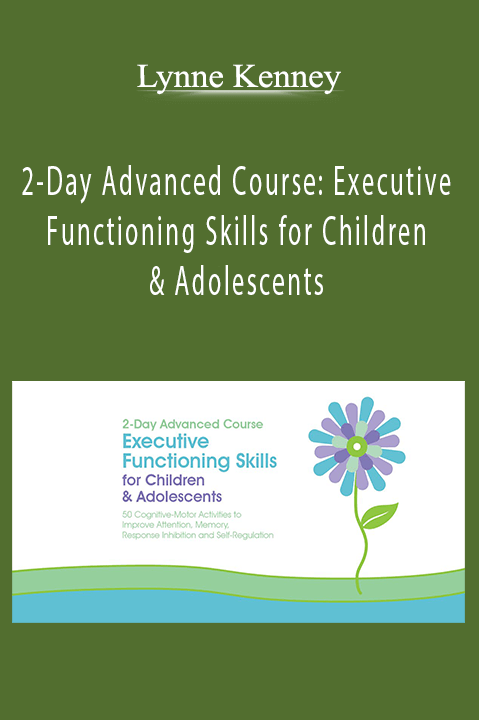
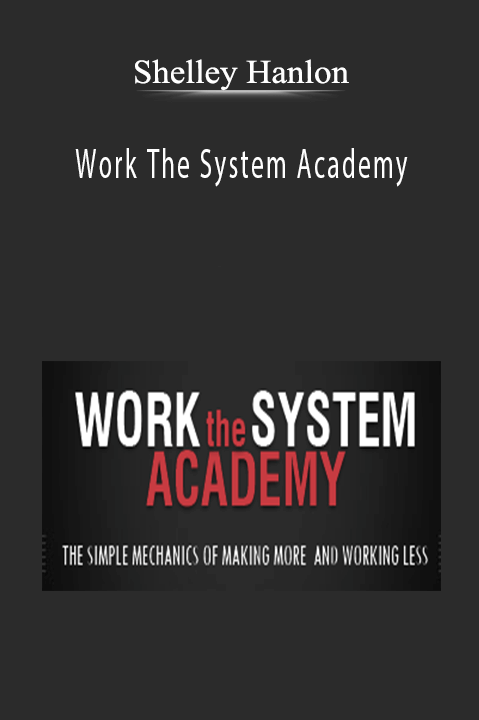


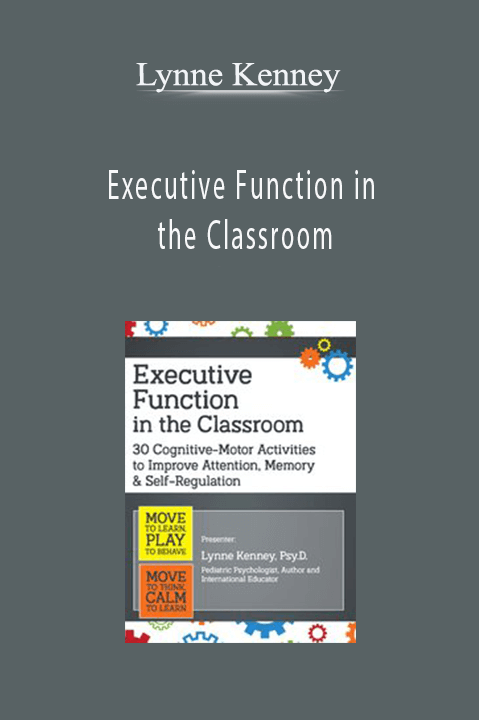
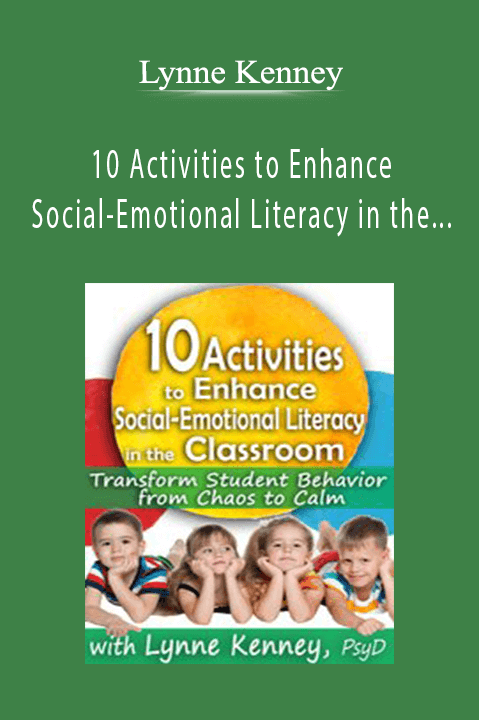
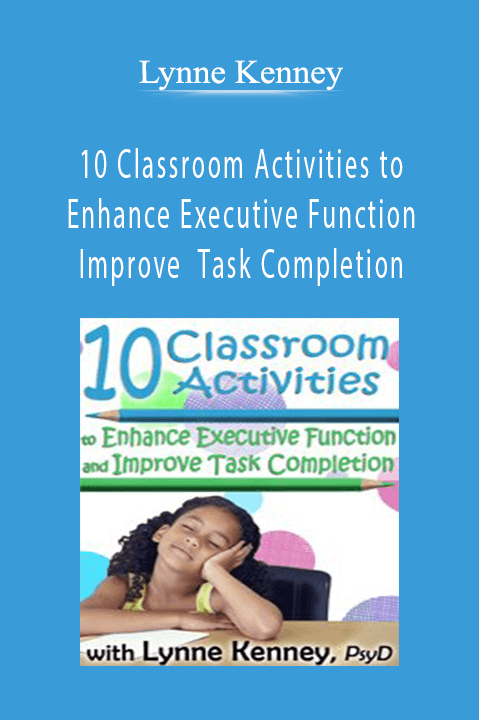
10 reviews for 2–Day Advanced Course: Executive Functioning Skills for Children & Adolescents: 50 Cognitive–Motor Activities to Improve Attention, Memory, Response Inhibition and Self–Regulation – Lynne Kenney
There are no reviews yet.